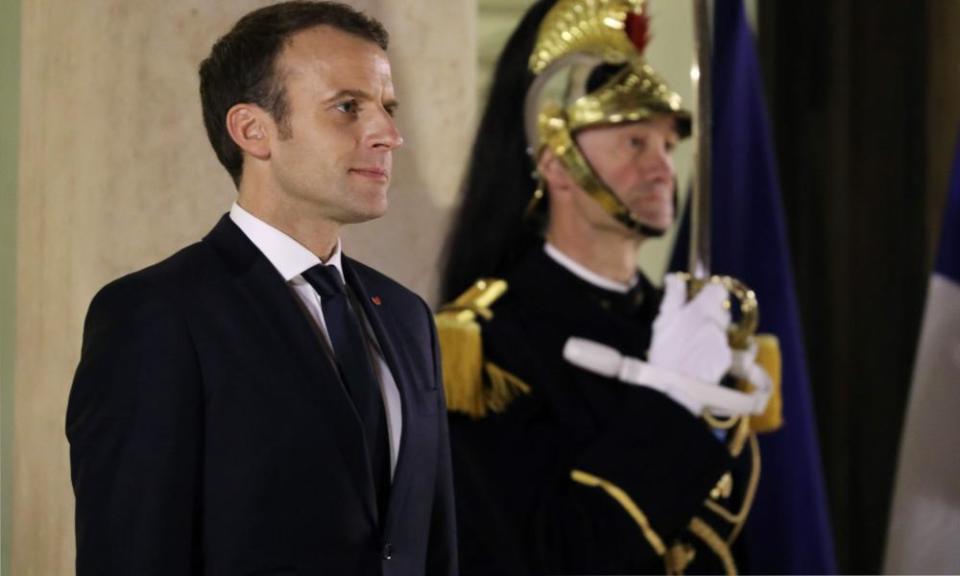Emmanuel Macron launches global campaign to promote French speaking

Emmanuel Macron will launch an international campaign to promote French speaking across the world in a speech at the Academie Française on Tuesday.
The president will announce what the Elysée says is a unique government-funded programme to boost “learning, communication and creation” in French.
Macron’s crusade is not confined to the club of French-speaking countries, known as la Francophonie – many of them in Africa – but across the globe.
Ambassadors from Ghana and Nigeria – traditionally English-speaking Commonwealth countries – have also been invited to Tuesday’s speech, which will be attended by Goncourt prize-winning author Leïla Slimani, appointed Macron’s personal representative for Francophone affairs last year.
Elysée officials have insisted the presidential crusade is not intended as a challenge to the English language but a push for a more multilingual world. However, on an official visit to Delhi last week Macron wooed Indian students, inviting them to “gain access to Europe” by choosing to study in France. His remarks brought a swift riposte from Boris Johnson saying that Britain had better universities.
Macron promised to promote French as part of last year’s election campaign. In a speech to students in Burkino Faso last November, he claimed French could be “the number-one language in Africa ... and maybe even the world”.
French is the sixth most spoken language in the world – after Mandarin Chinese, English, Hindi, Spanish and Arabic – and there are now more French speakers outside France than inside it. Population estimates suggest there will be more than 700 million French speakers by 2050, 80% of them in Africa.
La Francophonie, a network of more than 80 countries where French is spoken – including 32 where it is an official language – is France’s post-colonial equivalent of the Commonwealth.
Macron is expected to announce that money will be poured into teaching French, especially in Africa, alongside “maternal languages” in order to boost the “role and place of French in the world”.
He will also unveil measures to encourage more international students to study in France, as well as better language programmes for refugees and those who are “less well integrated” in France. The campaign will include measures to make French more widely used in the global media, the internet and the digital economy, and to encourage artists, writers and musicians to use French in their work.
A number of acclaimed writers in French have criticised Macron’s linguistic crusade as imperialist and out of touch. Last month, Alain Mabanckou, the prize-winning Congolese writer, told the Guardian la Francophonie had become an instrument of French imperialism propping up African dictators.
Mabanckou argued that the world club of French-speaking countries was “still defined by France, from a diplomatic point of view” as a continuation of hazy, old foreign policy ideas and a way of “sustaining French imperialism”.
In an open letter to Macron, Mabanckou wrote: “Unfortunately, la Francophonie is still seen as a continuation of France’s foreign policy in its former colonies. Rethinking Francophonie is not just ‘protecting’ the French language.”

 Yahoo News
Yahoo News 